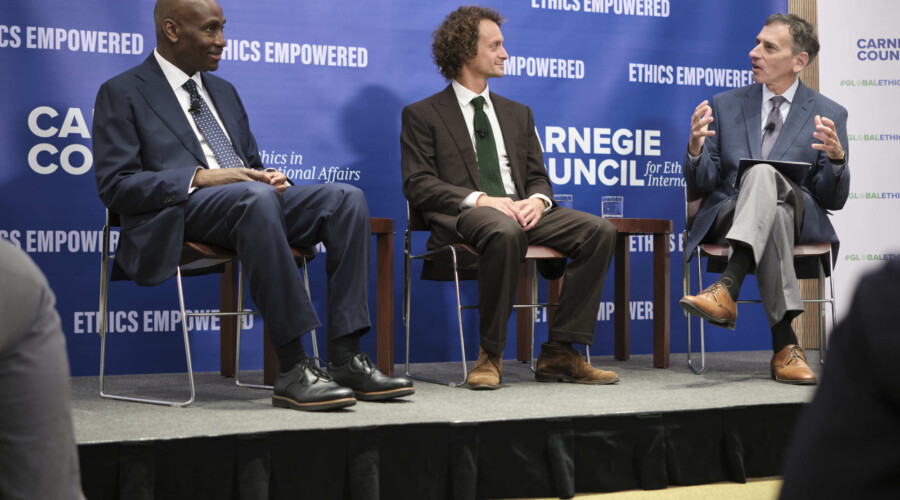现在,"海马 "导弹和 "爱国者 "导弹以及 "豹 "式和 "艾布拉姆斯 "坦克正在运往乌克兰的途中,北约的团结达到了顶点。下一步,北约将向乌克兰提供 F-16 战斗机以及持续的经济、政治和情报援助,以应对俄罗斯不断升级的侵略。
在这一历史性的英勇决心中,缺少了一些东西--同时展开的外交攻势。
我所说的外交并不意味着任何绥靖主义。恰恰相反。就如何结束这场战争进行头脑冷静、现实务实的讨论,将加强而不是削弱成功的前景。这也有助于确保乌克兰最坚定的盟友继续给予支持。
乌克兰英勇捍卫自由、抵御俄罗斯侵略的精神令西方振奋不已。然而,如何巩固乌克兰的胜利,如何缓解当前的消耗战,这些问题依然存在。
当地的事实很重要。交战各方在最终停火与和谈之前试图改变这些事实是可以理解的。战争中没有什么是确定无疑的;然而,随着这场冲突接近第二年,反攻的准备工作表明危险升级的可能性很大。
与此同时,人类付出的代价也在不断增加。乌克兰已造成数千平民伤亡,国内生产总值减少 30%,能源基础设施严重受损,出口减少引发世界粮食供应危机。据广泛报道,由于政治和经济孤立持续,俄罗斯的军事伤亡人数已达数万人。美国正在将炮弹产量增加 500%,以满足需求。
战争的无用性是一个古老的主题。最近,埃里希-马里亚-雷马克(Erich Maria Remarque)的第一次世界大战经典小说《西线无战事》(All Quiet on the Western Front )被翻拍成电影,鲜明而及时地提醒人们工业战争的不合理性和浪费。在四年的时间里,有 1700 万人丧生--其中大部分人死于战壕之间几平方米的泥土争夺战。
有些战争是必要和正义的。乌克兰战争就是这样一场冲突,北约与乌克兰站在一起,反对俄罗斯以民用基础设施为目标的灾难性侵略战争。为了达到支持 "正义战争 "的高标准,此刻决策者必须继续将战争手段(使用暴力)与战争目的(正义的和平)联系起来。
和平与力量是相辅相成的两种美德。最顽固的现实主义者都明白这一点。现代现实主义之父汉斯-摩根索(Hans Morgenthau)在其代表作《国家间政治》(Politics Among Nations)的结尾写道 各国间的政治以一首外交颂歌结尾,绝非偶然。
在民主武库继续提供武器和情报、战场行动继续快速进行的时候,希望北约办公室里有人在查阅摩根索的《外交九条》。他们会在其中找到这样的指导:"外交必须摒弃十字军精神";"军队是外交政策的工具,而不是它的主人";"政府是公众舆论的领导者,而不是它的奴隶"。
战场胜利的诱惑是巨大的。但历史提醒我们,真正的胜利是在和平谈判桌上取得的。乌克兰的优势在于它的道义论据及其盟友的物质支持。在一定程度上,升级确实是必要的,但仅靠升级不足以完成手头的任务。
Joel H. Rosenthal 是Carnegie Council for Ethics in International Affairs 的总裁。 订阅他的主席台时事通讯以接收他今后撰写的专栏,这些专栏将翻译伦理、分析民主,并审视我们这个日益相互联系的世界。
Carnegie Council 国际事务伦理委员会是一个独立的、无党派的非营利组织。本文所表达的观点仅代表作者本人,并不一定反映Carnegie Council 的立场。






